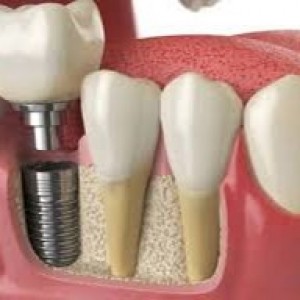
Hypertension and dental implants
Lara Figini
The prevalence of hypertension among adults aged 30 to 79 in 2019 was 32% in women and 34% in men, making it one of the most common chronic medical conditions worldwide and a leading cause of premature death in Worldwide. Persistent hypertension without proper treatment can lead to angina, heart attacks, heart failure, irregular heartbeat, stroke, kidney damage, heart damage, and sudden death. Furthermore, there is evidence to suggest that this condition causes adverse effects on bone health due to its connection with many biochemical and physiological factors. Hypertension can also have a negative effect on the microvascular system, its remodeling and angiogenesis. The effects of hypertension on bone metabolism and angiogenesis have raised questions regarding the condition that represents a risk for oral rehabilitation with dental implants, as these two processes are important for the osseointegration process and the long-term maintenance of the implants in the bone.
Materials and methods
In a very recent systematic review, published on Journal of Clinical Medicine, the authors investigated the influence of hypertension on the failure rate of dental implants. The authors carried out an electronic bibliographic search using four databases, plus a manual search. The I2 statistic was used to test for heterogeneity, and the inverse variance method was used for the meta-analysis. The relative effect estimate for the dichotomous outcome was expressed as odds ratio (OR).
Results
This review included 24 publications. 4874 implants (257 failures) were inserted in hypertensive patients and 16,192 implants (809 failures) in normotensive patients. A pairwise meta-analysis showed that implants in hypertensive patients had no higher risk of failure than implants placed in normotensive patients (OR 1.100, p = 0.671). The log OR of implant failure among hypertensive and normotensive patients did not change significantly with various follow-up times (p = 0.824).
Conclusions
From the data of this study, which must be confirmed in other similar studies, it can be concluded that implants in hypertensive patients are not more likely to fail than in normotensive patients.
Bibliography
Hypertension and Dental Implants: A Systematic Review and Meta-Analysis
Liljan Hamadé, Salma El-Disoki and Bruno Ramos Chrcanovic
J. Clin. Med. 2024, 13, 499. https://doi.org/10.3390/jcm13020499
 Related articles
Related articles
In an editorial published in Hypertension and Vascular Risk, clinicians said more than one billion people in the world suffer from the most advanced forms of periodontitis.
It is often said that the oral cavity is the window to overall health, and systemic conditions have many oral manifestations. Inaccurate or incomplete medical information provided to dental...
Products 27 November 2025
Neocis Unveils Next-Generation AI-Powered Robotic System for Dental Implants
Neocis, the pioneer behind the first and only U.S. FDA-cleared robotic system for dental implant surgery, today announced the launch and FDA approval of its next-generation robotic platform: Yomi...
News 23 October 2025
The global dental implants market is projected to grow from USD 5.45 billion in 2024 to USD 15.41 billion by 2035, expanding at a CAGR of 9.95% from.
Editorials 07 August 2025
Researchers are developing ‘smart’ implants that would provide a more natural feel while chewing or talking
 Read more
Read more
Digital Dentistry 05 December 2025
Artifact-resistant superimposition of digital dental models and cone-beam computed tomography images
Combining the maxillofacial cone-beam computed tomography (CBCT) model with its corresponding digital dental model enables an integrated 3-dimensional (3D) representation of skeletal structures,...
Editorials 05 December 2025
Rural dental residency program receives a lifeline from donor organizations
When federal funds to HSDM’s rural residency program went unpaid, a coalition of regional partners stepped up to secure the program’s future.
Products 05 December 2025
VideaHealth, the leading dental AI platform, recently announced the appointment of Austen Asadorian as Chief Revenue Officer. With two decades of experience scaling high-performing organizations,...
News 05 December 2025
VELMENI, a global leader in artificial intelligence (AI) solutions for dental care, and Jazz Imaging, an innovative provider of dental imaging systems, recently announced a strategic partnership...
News 05 December 2025
BIOLASE, the global leader in dental lasers, announced its participation in the 2025 Greater New York Dental Meeting (GNYDM), taking place November 28–December 3 in New York City.















